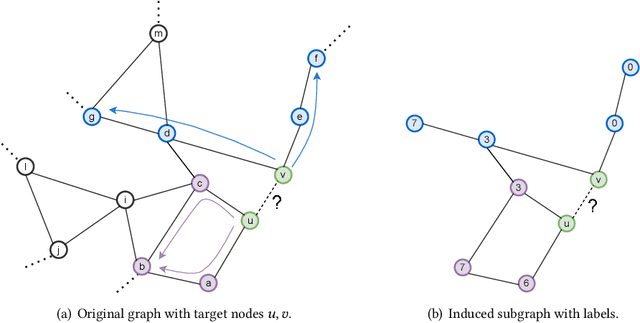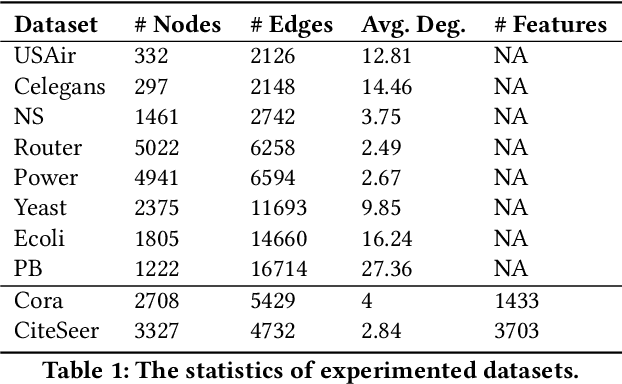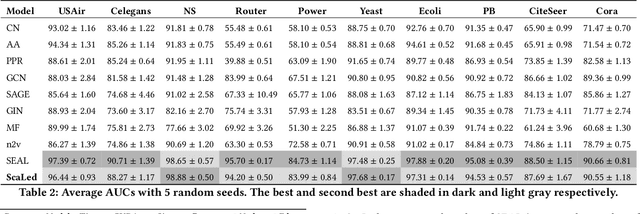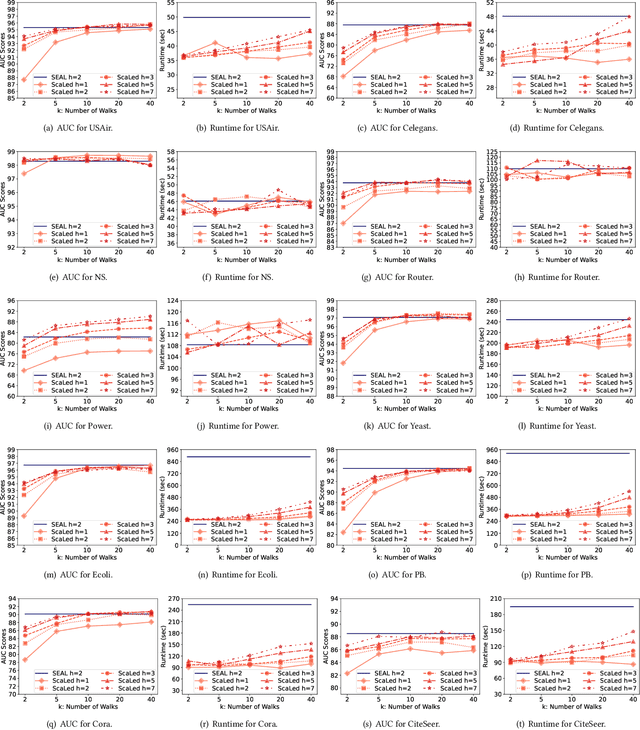Sampling Enclosing Subgraphs for Link Prediction
Paper and Code
Jun 23, 2022



Link prediction is a fundamental problem for graph-structured data (e.g., social networks, drug side-effect networks, etc.). Graph neural networks have offered robust solutions for this problem, specifically by learning the representation of the subgraph enclosing the target link (i.e., pair of nodes). However, these solutions do not scale well to large graphs as extraction and operation on enclosing subgraphs are computationally expensive, especially for large graphs. This paper presents a scalable link prediction solution, that we call ScaLed, which utilizes sparse enclosing subgraphs to make predictions. To extract sparse enclosing subgraphs, ScaLed takes multiple random walks from a target pair of nodes, then operates on the sampled enclosing subgraph induced by all visited nodes. By leveraging the smaller sampled enclosing subgraph, ScaLed can scale to larger graphs with much less overhead while maintaining high accuracy. ScaLed further provides the flexibility to control the trade-off between computation overhead and accuracy. Through comprehensive experiments, we have shown that ScaLed can produce comparable accuracy to those reported by the existing subgraph representation learning frameworks while being less computationally demanding.
 Add to Chrome
Add to Chrome Add to Firefox
Add to Firefox Add to Edge
Add to Edge